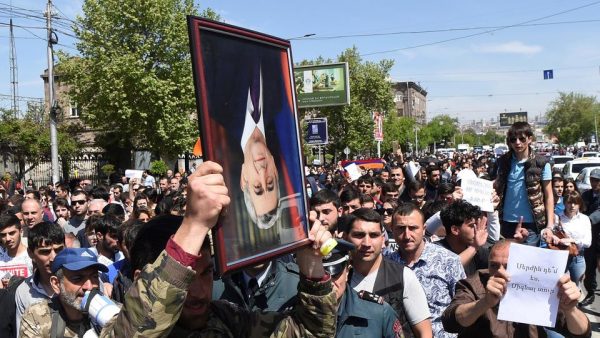
Tens of thousands of Armenian opposition supporters rallied on Friday for an eighth consecutive day against the appointment of ex-president Serzh Sarksyan as the new prime minister and demanded an early parliamentary election.
Parliament voted on Tuesday to allow Sarksyan, who had served as president of the small ex-Soviet republic from 2008 until this month, to become premier, in a job switch his opponents say show he is clinging to power.
Under a revised constitution approved by referendum in 2015, the prime minister now has most power in Armenia while the presidency has become largely ceremonial.
A Sarksyan ally, Armen Sarkissan, was sworn in as president last week after being elected by the parliament.
The opposition activists marched through the capital Yerevan on Friday, waving national flags and chanting: “Make a stand, say no to Serzh.”
They blocked several streets in the center and staged sit-ins. Police detained about 200 activists.
“Serzh Sarksyan should resign … An early parliamentary election should be held in the country,” Nikol Pashinyan, one of the opposition leaders, told a crowd of more than 30,000 people.
He said the opposition was ready to discuss such a plan with the ruling Republican Party after President Sarkissian on Thursday called for dialogue.
“There is no intention to use force (against the protesters), but the atmosphere of permissiveness can not prevail in the country,” Sarksyan told independent Armenian Shant TV late on Thursday.
Armenia seceded from the Soviet Union in 1991 but remains dependent on Russia for aid and investment. Many Armenians accuse the government of corruption and mishandling an economy that has struggled to overcome the legacy of central planning.
REUTERS

Leave a Reply
You must be logged in to post a comment.